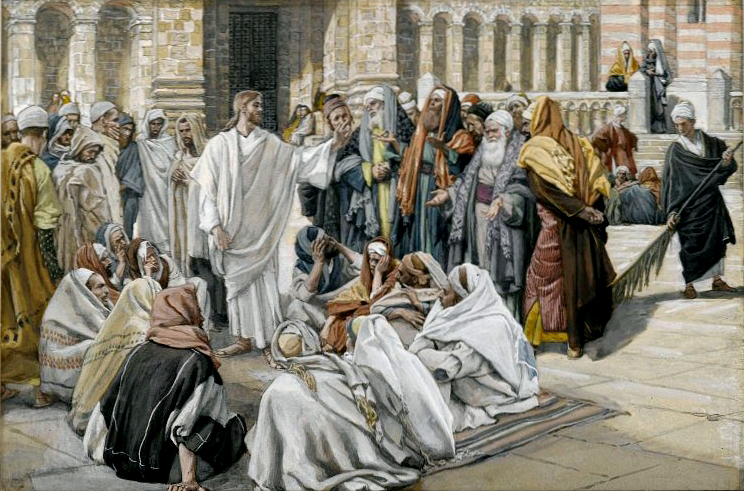How Jesus dodged Pharisees’ passive-aggressive trap to reveal how to love both your Lord and neighbour
“‘You shall love the Lord your God with all your heart, and with all your soul, and with all your mind.’ This is the greatest and first commandment. And a second is like it: ‘You shall love your neighbour as yourself.’” (Matthew 22:37-39) In the readings of Sunday 15 September – according to our older calendar The post How Jesus dodged Pharisees’ passive-aggressive trap to reveal how to love both your Lord and neighbour appeared first on Catholic Herald.

“‘You shall love the Lord your God with all your heart, and with all your soul, and with all your mind.’ This is the greatest and first commandment. And a second is like it: ‘You shall love your neighbour as yourself.’” (Matthew 22:37-39)
In the readings of Sunday 15 September – according to our older calendar – Jesus dodges the passive-aggressive trap of the Pharisees by giving a perfect summary of the Jewish law, combining Deuteronomy 6:5 and Leviticus 19:18.
But how is love of God “similar” to love of self and neighbour? The two are certainly not the same – loving God is primarily about receiving, while loving neighbour and self is primarily about giving – and often we can get them the wrong way round: we try to earn God’s love by our deeds (exaggerated giving to God) and depend on others or personal comfort for our self-worth (excessive receiving).
But the two loves are similar because they have similar objects: Jesus says “whatever you did for the least of these brothers of mine you did it for me” (Matthew 25:40).
And the two loves have the same source: when we love God, others or ourselves, we are freely sharing in God’s own action of loving. Jesus can command us to love with all we have because, in his cross and resurrection, he loved us with all he had, and he gives us his own loving for us to love with!
One particular thing that Matthew says we should use to love God is “all our mind” – a detail absent from the Deuteronomy text being quoted.
And in the following verses Jesus exemplifies this use of the intellect in loving God, by unlocking the mystery of a Scripture text: “The Lord said to my Lord, sit on my right, till I put your enemies under your feet” (Psalm 110).
The Pharisees assumed this verse referred to God addressing the Messiah, who would be a descendant of David and so no greater than him: they were awaiting a political Messiah like King David.
But Jesus unveils the hidden depth of the word “Lord”: it is used equally for both God and the Messiah, which puts them on equal rank. The Messiah will not be a king like his ancestor David, but will be divine.
The Pharisees’ horizons were limited to what they knew from the past – the earthly reign of King David – and so they missed the deeper meaning of the psalm.
Do I see the future only in terms of the past or do I allow room for God to do something outside my current categories?
And just as Jesus saw the hidden depth of the psalmist’s word “Lord”, we can see the hidden depth of another word of the psalmist in the introit of this Mass: “Beáti immaculáti in via” (“Blessed are the immaculate in the path” – Psalm 119:1).
Sunday was also the celebration of Our Lady of Sorrows who was “immaculate” on the “way of the cross”, following her Son to Calvary without falling into despair.
RELATED: Additional Sunday reflections from Fr David Howell
Photo: ‘Jesus is questioned in the Temple’, a painting by James Tissot (1836-1902).
Fr David Howell is a priest of Southwark currently studying canon law in Rome. His previous studies include Classics at Oxford and a licence in Patristics at the Augustinianum Institute in Rome.
![]()
The post How Jesus dodged Pharisees’ passive-aggressive trap to reveal how to love both your Lord and neighbour appeared first on Catholic Herald.













